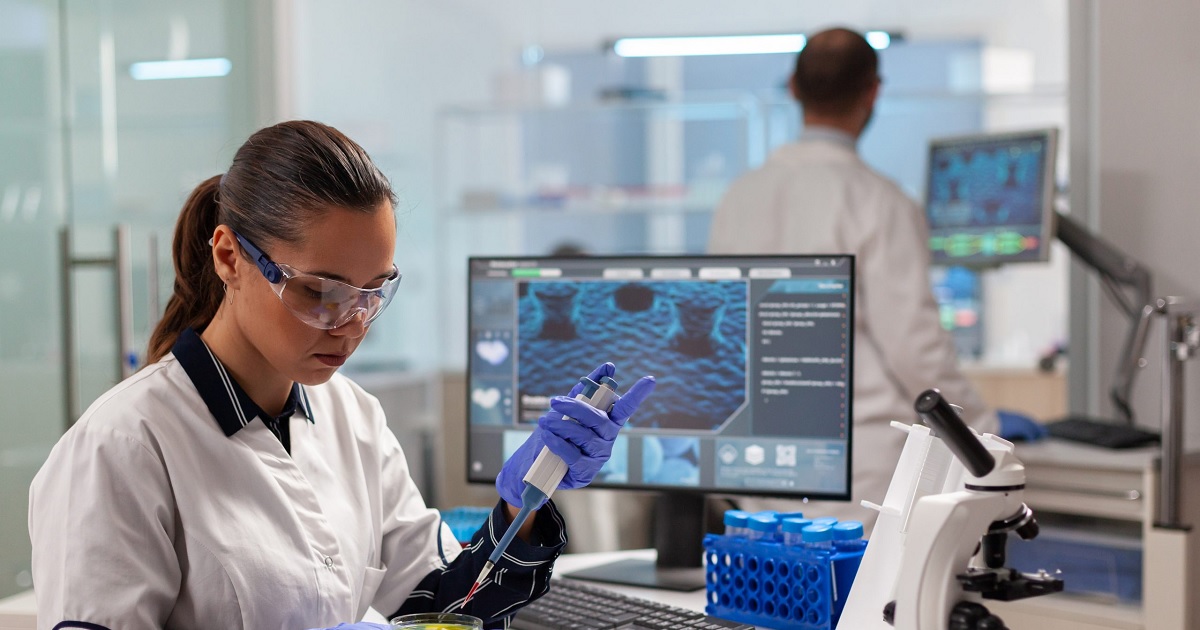
MedTech
Outcomes4Me | October 12, 2021
Outcomes4Me Inc., developer of a leading free mobile app and platform to navigate cancer treatment and care, today announced that it has partnered with Invitae Corporation (NYSE: NVTA), a leading medical genetics company, to expand education and access to genetic testing to breast cancer patients and survivors. The collaboration leverages the strengths of Invitae, which supplies clinical grade genetic testing, and Outcomes4Me’s 360-degree, validated and evidence-based cancer support and treatment options via its free and easy-to-use app. Initially and currently available in the United States, patients can now receive genetic counseling through Invitae’s partnership with Genome Medical, get testing, and upload their results within the Outcomes4Me app.There is a misconception that genetic testing is only useful as a preventative tool prior to a cancer diagnosis. According to Outcomes4Me patient data, almost half of users (46 percent) who qualified for testing (based on NCCN Guidelines®) did not receive testing or did not know if they had received testing. However, genetic testing can provide insights that can help inform and refine precision therapy use and clinical treatment trial enrollment. In addition, genetic testing results can be used to help prevent recurrence and reduce incidence of other inherited cancers.
A cancer diagnosis is often overwhelming for patients and their families. Outcomes4Me demystifies cancer by providing the most up-to-date and validated research, support, and treatment options, all grounded in science and data and curated according to the patient’s specific diagnosis. Outcomes4Me partners with the researchers, doctors, and academics that set the rigorous standards of cancer care for all treatment providers, including the National Comprehensive Care Network® (NCCN®), Vanderbilt-Ingram Cancer Center (VICC) and Massachusetts General Hospital (MGH). The collaboration with Invitae expands access to genetic testing, a vitally important tool in the patient’s cancer care arsenal.
“Outcomes4Me is an indispensable platform for patients with breast cancer, giving them the personalized knowledge and access to timely new trials and targeted therapies that could lead to better health outcomes. By providing access to our comprehensive genetic testing and counseling services, Outcomes4Me is adding a valuable resource that will empower patients to advance their knowledge, understanding, and therefore, self-advocacy during treatment and survivorship.”
Ed Esplin, M.D., Ph.D., FACMG, FACP, Clinical Geneticist at Invitae
Unlike popular direct-to-consumer genetic testing services, which test for a few specific genetic variants for certain genes, Invitae provides state-of-the-art clinical grade next-generation sequencing-based (NGS) genetic testing that comprehensively analyses more than 80 genes, including all known mutations of the important BRCA1/BRCA2 genes. This comprehensive approach, combined with associated genetic counseling, not only provides insights for cancer patients, but also for family members who may be at risk.
“Our collaboration with Invitae reinforces Outcomes4Me’s mission to give patients back control. Because of this work with Invitae, our valued community now has rare direct access to a much-needed testing service. Outcomes4Me will proudly continue to democratize the best in cancer treatment, research, and support by removing barriers and bias in information flow.”
Maya R. Said, Sc. D., Founder and CEO of Outcomes4Me
About Invitae
Invitae Corporation (NYSE: NVTA) is a leading medical genetics company whose mission is to bring comprehensive genetic information into mainstream medicine to improve healthcare for billions of people. Invitae's goal is to aggregate the world's genetic tests into a single service with higher quality, faster turnaround time, and lower prices.
About Outcomes4Me
Outcomes4Me is on a mission to improve health outcomes by empowering patients with understandable, relevant and evidence-based information. Outcomes4Me has developed a platform for shared decision-making between patients and providers. The platform harnesses regulatory-grade, real-world data and patient experiences generating deeper insights and better outcomes to improve care and accelerate research. The Outcomes4Me mobile app enables cancer patients to make decisions and take control of their care based on information that is personalized to their specific condition, including finding treatment options, matching to clinical trials, and tracking and managing symptoms. Based in Boston, Massachusetts, Outcomes4Me, a woman-led company, comprises seasoned healthcare, oncology, pharmaceutical, consumer and technology veterans.
Read More

Drug Target Review | November 25, 2019
A potential new signalling pathway that may help further the understanding of blood clot formation in cancer patients and help prevent this complication from occurring has been identified by researchers from Boston University School of Medicine (BUSM), US. The researchers examined the levels of different molecules and break down products (known as metabolites) in the blood as well as within blood clots from experimental tumour models. They discovered increased blood levels of two molecules called kynurenine and indoxyl sulfate, both of which are metabolites of the amino acid, tryptophan, often a dietary component. These high levels of kynurenine and indoxyl sulfate were also associated with increased blood clot size in an experimental model. The study shows that blood clot size could be reduced by pharmacologically inhibiting the aryl hydrocarbon receptor (AHR) pathway, a known target of indoxyl sulfate and kynurenine, suggesting that this may be a target for future drug development.
Read More

Technology Networks | November 20, 2019
Activation of CD95, a receptor found on all cancer cells, triggers programmed cell death - or does the opposite, namely stimulates cancer cell growth. Scientists from the German Cancer Research Center (DKFZ) have now shown that the impact of CD95 activation depends on whether there are isolated cancer cells or three-dimensional structures. Individual cells are programmed to die following CD95 activation. In contrast, CD95 activation stimulates growth in clusters of cancer cells, for example in solid tumors. This finding points to new ways of specifically transforming growth-stimulating signals into cell death signals for the cancer cells. The receptor protein CD95 is exposed on the surface of all cancer cells like small antennae. Activation of the receptor by the CD95 ligand (CD95L) triggers apoptosis in the cancer cell - or the exact opposite: "We studied various types of cancer tissue and found that CD95 activation usually stimulates tumor growth under natural conditions," remarked Ana Martin-Villalba, who has been conducting research at DKFZ on the role of CD95 for many years now. She was the first to describe the cancer-promoting effect of CD95 in glioblastomas (malignant brain tumors).
Read More